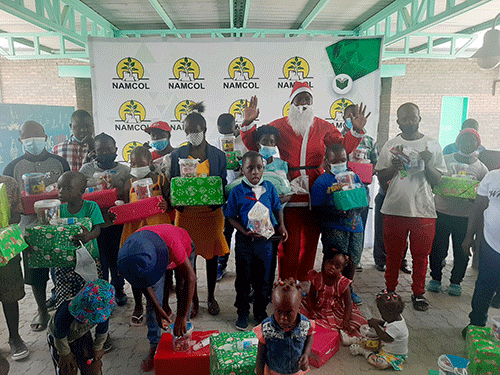ONGWEDIVA - The condition of Down syndrome occurs in families regardless of social, economic, cultural, religious or racial backgrounds, thus people with this condition need to be treated with dignity and respect.
This was said by Hannah Kambowe, chief of occupational therapy at the Oshakati state hospital, during a Christmas lunch organised for people with Down syndrome by the Namibia College of Open Learning (Namcol) at the Ongwediva Trade Fair grounds recently.
More than 80 people with Down syndrome from the Oshana region attended the event held to celebrate life and to let them know they are special.
Down syndrome is a condition in which a child is born with an extra copy of their 21st chromosome. This causes physical and mental developmental delays and disabilities.
“There are problems highlighted about the syndrome like, ignorance about the causes of Down syndrome, the association of disability with witchcraft and sin, and the continued hiding away of children or family members with Down syndrome,” stressed Kambowe.
People with this condition sometimes face discrimination socially, economically, culturally, and religiously, which lead to their marginalisation and exclusion from mainstream life. These people, together with their parents and guardians, were, however, encouraged not to overlook and undermine their abilities in school and in work, but to be positive and know they too have capabilities.
She explained families of those with Down syndrome also experience shame and marginalisation because of community perceptions.
“It must be recognised that all people with Down syndrome have basic human rights like any other member of the community, and the need to be heard at any levels; their voices of experience should lead efforts to promote inclusion.” Kambowe added people with Down syndrome are at greater risk of gender-based violence, which is an issue that disproportionately affects women, and it should be noted that women and girls with Down syndrome are therefore particularly vulnerable.
“People with Down syndrome need to engage with other people, need to attend schools and engage in other activities like sports to improve their neuron system and boost their mental health,” she stated.
- fhamalwa@nepc.com.na


